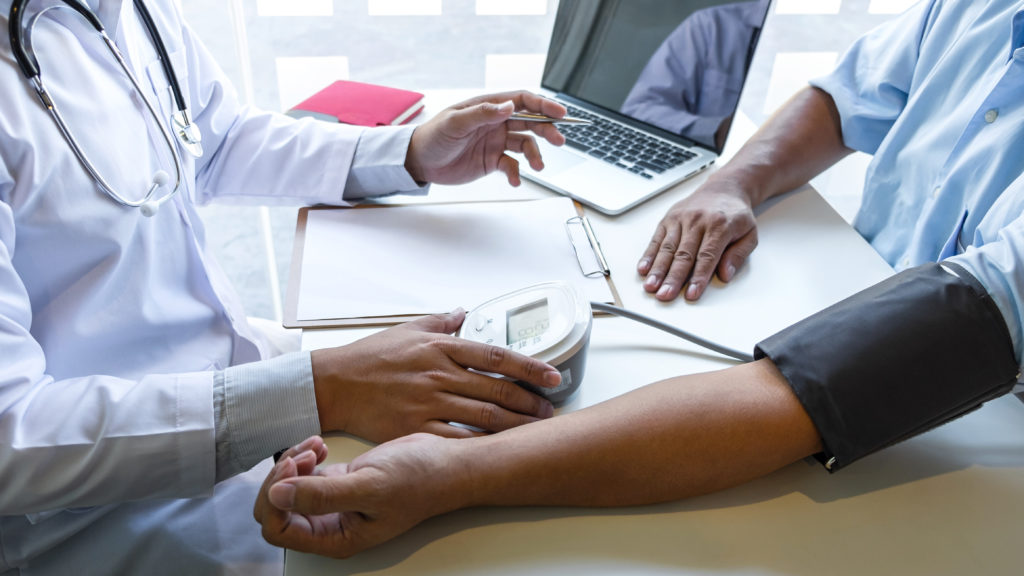Orthostatic Hypotension

Orthostatic hypotension (OH), also known as postural hypertension, is a type of low blood pressure that occurs when standing after sitting or lying down. Symptoms can be mild and brief or more severe and chronic. Symptoms vary from the sensation of dizziness or lightheadedness to loss of consciousness, depending on the severity. Mild periodic symptoms can usually be attributed to dehydration or a period of bed rest, and are easily treated. More severe symptoms should be evaluated by your doctor as persistent OH can be a symptom of an underlying medical condition.
Symptoms of Orthostatic Hypotension
Dizziness or lightheadedness is the most common symptom of OH. Symptoms that are more concerning include blurry vision, weakness, fainting or losing consciousness, and confusion upon standing. Keeping track of when and how often symptoms occur is important. Mild periodic lightheadedness, for example, may be of less concern to your physician than feeling faint while driving. Talking with your physician is important because complications from OH can be serious, especially for the geriatric population. The most common is injury from a fall due to dizziness or fainting. Additional complications include stroke due to reduced blood flow to the brain and irregular heartbeat.
OH occurs because of a drop in blood pressure when standing. Gravity allows blood to collect in our legs or abdomen resulting in less blood flowing back to the heart. When this occurs our body signals our brain to make our heart pump faster which stabilizes our blood pressure. When this process is interrupted, OH occurs.
Conditions that may Cause OH
Dehydration. Dehydration reduces blood volume, and thus, blood pressure. Drinking an insufficient amount of fluids, fever, vomiting, severe diarrhea, and excessive sweating all lead to dehydration.
Eating meals. Some, not all, older adults have lower blood pressure after eating a meal.
Cardiac problems. Very low heart rate, heart valve problems, and heart attack prevent the body from pumping more blood upon standing.
Neurological problems. Neurological disorders such as Parkinson’s disease, Lewy body dementia, and multiple system atrophy may interrupt the body’s ability to regulate blood pressure.
Endocrine problems. Thyroid problems, Addison’s disease, and hypoglycemia can cause OH. Diabetes can damage the nerves that send signals to the brain and thus interfere with the body’s ability to regulate blood pressure.
Medications. Medications used to treat high blood pressure can cause OH. These include diuretics, beta blockers, alpha blockers, etc. Medication used to treat Parkinson’s disease, some antidepressants, some antipsychotics, muscle relaxants, and narcotics may increase risk for OH.
Your physician can assess these conditions and related symptoms and devise a treatment plan with you. Because OH can result in serious injury, it is important to discuss any increase in frequency of occurrence or prolonged duration of symptoms with your physician.
